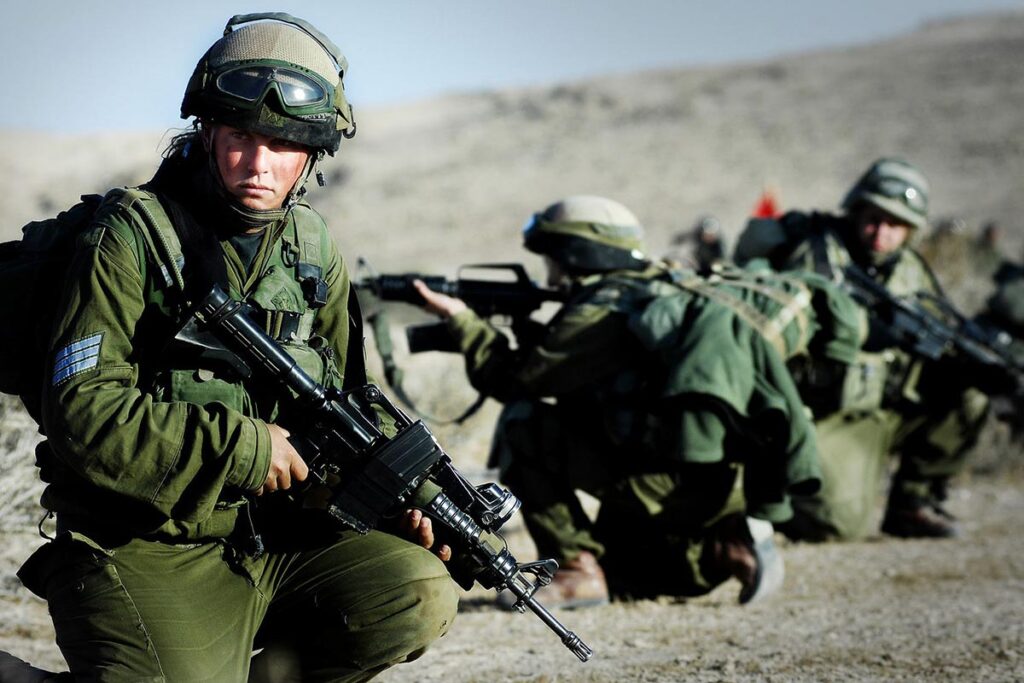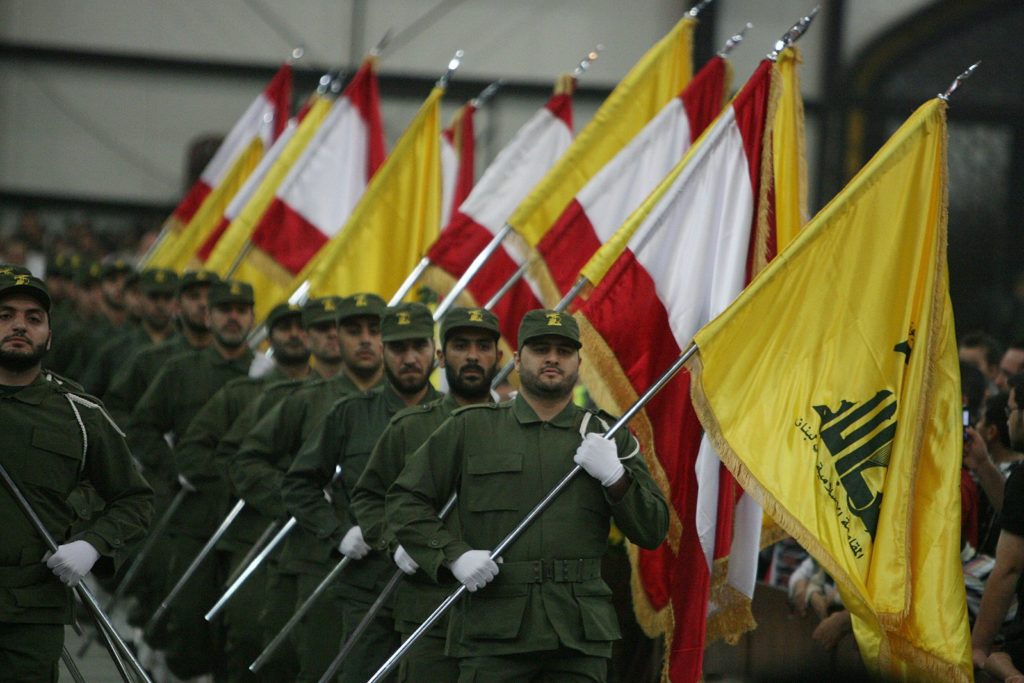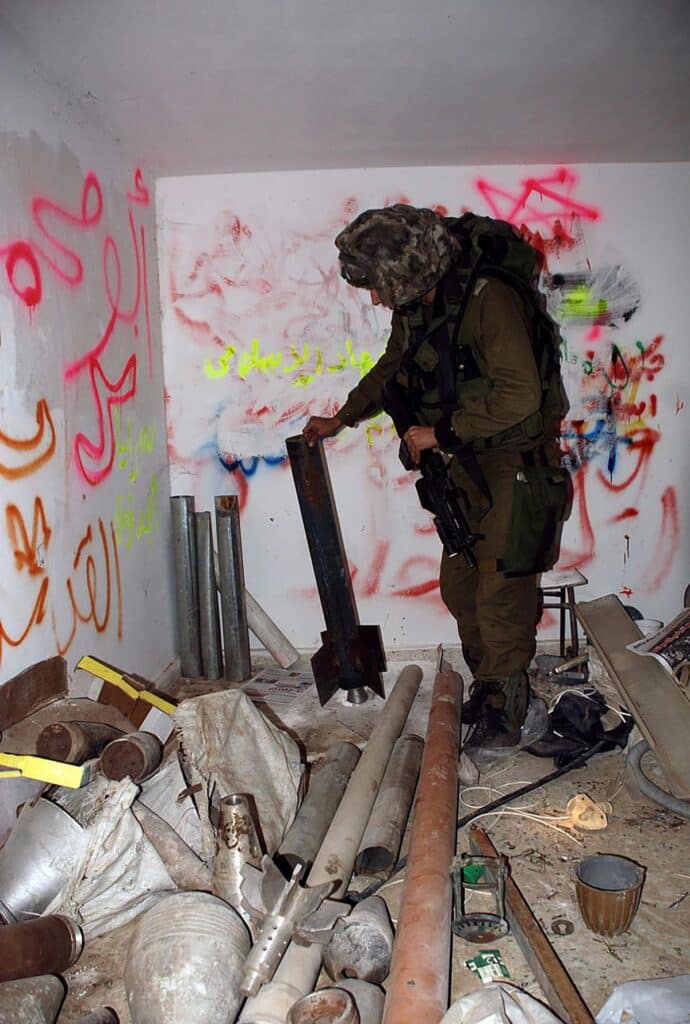Is the IDF the most moral army in the whole wide world, or does it deserve the harsh criticism it often gets? A question like, “Is the IDF the most moral army?” can have only one answer: yes or no. But real life doesn’t fit so neatly into that kind of binary.

So here’s a different question I think we should be asking instead. Given the complex, asymmetric nature of the Arab-Israeli and Palestinian-Israeli conflicts, does the IDF need to be the most moral army in the world?
I’m obviously not the first person to ask about the ethics of warfare. Today’s armies are subject to international humanitarian law, supranational pressures, and public scrutiny, not to mention their own specific ethical codes.
And the backbone of the IDF’s moral code is the rather poetic concept of tohar haneshek, or purity of arms. To maintain “purity of arms” is to refrain from using unnecessary force and hurting innocent people.
Which sounds good in theory, until you try to pin it down and match it up to current events. What is “unnecessary force”? What if you hurt an innocent person by mistake? What if a soldier goes rogue? What if a civilian ignores your orders to evacuate? What if the weapons tunnel was built under a school?
Each of Israel’s wars brought increasingly thorny questions. For decades, Israel fought for one thing and one thing only…its existence. To paraphrase my favorite villain from Game of Thrones, Cersei Lannister: “When you fight an existential war, you win or you die. There is no middle ground.”
The wars of 1948, 1967, even 1973 threatened Israel’s very existence. But slowly, the IDF cemented Israel’s status as the strongest country in the Middle East. When Israel’s enemies realized they could no longer hope to annihilate the state on a traditional battlefield, they changed the game.
Some, like Egypt and Jordan, put aside their nation-destroying ambitions and brokered peace. Sure, they’re not exactly the warmest of friends, but the two countries do cooperate with Israel militarily and economically. I like to think of them as Israel’s frenemies.
But other players, like Hamas, Islamic Jihad, and the Iranian proxy Hezbollah, opted for a different kind of war. An ugly war. A complicated war. A war waged not between countries, but between a country and an armed political party that uses terror as a tactic. In military parlance, an asymmetric war.
This is such an important term! An asymmetric war is a war between two unevenly matched opponents. You’d think the stronger side — in this case, Israel — would always have the upper hand, and in some senses, it does.
It’s got better technology. Better training. More experience. Much more legitimacy on the world stage.
But the weaker side — Hamas, Islamic Jihad, or Hezbollah, depending on the day — has an ace up its sleeve. These groups are more than willing to rely on tactics that fly in the face of the IDF’s moral code. Purposeful attacks on civilians. Kidnapping. Hijacking. Using human shields.
All this presents the IDF with a painful moral dilemma. How should a conventional army engage an enemy that often abandons moral principles and accepted rules of warfare?
How do you maintain tohar haneshek, purity of arms, when you’re fighting an enemy embedded amongst civilians?
Unfortunately, Israel has had many opportunities to answer these questions. And this is where things get messy. Where everyone seems to have a very different — and very heated — opinion. And that includes folks across the world.
In fact, a 2019 study found that Israeli officers were much less likely than their American counterparts to continue a mission that might result in civilian casualties. Of course, the study asked officers to assess hypothetical scenarios. And unfortunately, war is anything but hypothetical. So let’s dive into a couple of recent real-world examples to help understand it all.
Second Lebanon War, 2006
The north of Israel is green and lush and gorgeous, criss-crossed with hidden springs and cold, rushing rivers. It’s also ground zero for Hezbollah attacks. Between 2000 and 2006, Hezbollah terrorized the north of Israel with kidnappings, shootings, stabbings, bombings, and rocket attacks. Then came the war.
On July 12, 2006, Hezbollah fired a barrage of rockets at northern Israel, killing eight Israeli soldiers. This was just a cover for their real “power move:” abducting two additional soldiers, knowing that Israel would pay a high price for their safe return.
But it was Lebanon that paid the price instead.
Northern Israel had suffered Hezbollah’s provocations for years. And everyone — from civilians to the government to the army — had had enough. Israel hammered Hezbollah. Airstrikes. A ground invasion. Hand-to-hand combat. All to neutralize the threat from the north.
Now, Hezbollah is an interesting enemy. I mean, it’s an internationally recognized terrorist group with no interest in adhering to the internationally accepted rules of warfare. But where other terrorist groups, like ISIS, are relatively marginal and almost universally reviled, Hezbollah’s got some teeth.
The group enjoys generous backing from Iran. Boasts more manpower than the Lebanese army. Makes up a little over 10% of the Lebanese parliament. And routinely goes over the government’s head. Because Lebanon is fractured. Its government is weak. Hezbollah has emerged as a particularly powerful actor, whose actions — and warmongering — significantly impact the Lebanese people.
Compounding Hezbollah’s global impact is the fact that the party simply refuses to abide by any of the conventional rules of warfare. Like, say, treating prisoners humanely. After capturing the two soldiers in 2006, Hezbollah refused to allow them any contact with the outside world.
Two years later, Hezbollah revealed that the soldiers had died during or shortly after being kidnapped. That’s two years of worry and grief and hope. Two years of playing on one of Israel’s biggest vulnerabilities. Because Israel will do almost anything to bring its soldiers home from captivity. The IDF doesn’t abandon its soldiers.
Hezbollah doesn’t seem to show such concern for the Lebanese people. Quite the opposite. During the 2006 war, the terrorist group used Lebanese civilians as human shields, placing command posts and weapons depots in or near schools, hospitals, mosques, and private residences.
They dug pits filled with explosives along the road leading to the Israeli border and conducted their business from rented residential apartments in civilian areas. Imagine living next door to Hezbollah operatives, who use your apartment building as a meeting place to discuss their next act of terror!

I’m telling you all of this so you understand the stakes. The huge complexity of fighting an enemy for whom hurting civilians is a feature, not a bug.
The war lasted for 34 days. For all 34 of those days, Israel walked a fine line between fighting Hezbollah and preserving civilian lives and infrastructure. The IDF showered Lebanon with Arabic leaflets warning civilians to leave their homes before an airstrike. They called Lebanese telephones with pre-recorded messages in Arabic and broadcast their warnings via loudspeaker. For some reason, people often forget this part of the story.
But there’s another side to this too if we’re being honest. Warnings are only so effective in densely populated areas. Israeli intelligence estimated that roughly 600 Hezbollah members were killed, along with hundreds of Lebanese civilians.
These civilians were innocent people who paid the price for the actions of a rogue terrorist group acting in defiance of Lebanese interests. And that breaks my heart. Because every human life has dignity. And every civilian casualty is a tragedy.
Hezbollah’s leader, Hassan Nasrallah, later commented: “We did not think, even one percent, that the capture would lead to a war at this time and of this magnitude. You ask me, if I had known… that the operation would lead to such a war, would I do it? I say no, absolutely not.”
Surprising words from the leader of a group that hides amongst civilians. It almost sounds as though Nasrallah relied on Israel to occupy the moral high ground. To “turn the other cheek,” as it were, to Hezbollah’s endless provocations. But Jewish law says nothing about turning the other cheek. Quite the opposite. In the tractate Sanhedrin, page 72a, the Talmud tells us: “אם בא להורגך השכם להורגו.” “If someone comes to kill you, rise and kill him first.”
And to me, that’s perfectly moral. Like any other sovereign nation, Israel has every right to defend itself. Many condemned the Israeli response to Hezbollah as “disproportionate.” But Israel certainly did not start the war. Israel did not spend six years shooting indiscriminately into Lebanon, or kidnap two soldiers and kill another eight, or unleash a barrage of rockets into Lebanon. It’s absolutely tragic that civilians died. But the moral responsibility for their deaths lies with Hezbollah. Not with Israel.
Let’s move to a more recent conflict.
Gaza War, 2014
The Gaza Strip has a lot of problems. It’s very densely populated, with a rapidly growing population. It lacks decent water, sewage, and electrical infrastructure. It’s got a high rate of unemployment. Oh, and it’s governed by a terrorist group that spends its time and money provoking its neighbors rather than improving life for its people.
The terror group Hamas took over the Gaza Strip in 2007, after a nasty civil war with its political rival, Fatah. You know, torture, extrajudicial executions, throwing each other off high-rise buildings, fun stuff like that. This is gonna be a theme in this section, so get ready: Hamas has no problem committing human rights atrocities against fellow Palestinians.
So it shouldn’t surprise you that they have little compunction about firing rockets on Israeli civilians, kidnapping and killing Israeli civilians, and sending suicide bombers and incendiary balloons to civilian areas. Yeah, in case it’s not clear: they really don’t care about civilians. Not Israelis. Not Palestinians.
And they make that very clear with their tunnels. See, Gaza is criss-crossed by a complex web of concrete tunnels, used to smuggle weapons, fuel, food, and occasionally bodies into the Gaza Strip. Tunneling takes money, resources, and labor. Hamas provides that in spades. $150 million. 800,000 pounds of concrete. And a virtual army of children under 18, whose small, agile bodies can scramble into the tiny spaces under the ground.
An organization that uses child labor has little regard for Israeli children. In 2014, Hamas operatives kidnapped three Israeli teenagers. The IDF arrested most of Hamas’ operatives in the West Bank. Hamas responded with rocket fire. Israel sent airstrikes. Hamas unleashed more rockets. Israel launched a ground invasion, destroying 34 tunnels and roughly two-thirds of Hamas’ rocket arsenal.

Ordinary Israelis and Palestinians alike are sick of the never-ending cycle. It’s not a contest, because there are no winners here. But I’d argue that the violence is even more psychologically damaging for Palestinians than it is for Israelis.
Both people understand the panic of an aerial bombardment. But Israelis know their military infrastructure is designed to protect them. That their government mandates that all buildings have a bomb shelter. That their country expended considerable resources on the Iron Dome, which intercepts and shoots down missiles.
But Palestinians don’t have that luxury. They can’t rest easy knowing that their government is watching out for them. Because the government in Gaza does quite the opposite.
Instead of working to improve Palestinians’ lives, Hamas picked a fight that they knew they’d lose. They used the chaos of the ensuing war to “clean house” by torturing and executing political rivals on trumped-up charges. And they shot thousands of rockets at Israel, a quarter of which fell in Palestinian territory. At least 13 Palestinians — 11 of them children — were killed by Hamas rocket fire in 2014.
Ok, Noam, you might say. That’s horrible, but Israel killed way more Palestinians than Hamas! Just look at the death toll! Over 2,000 Palestinians died in the 2014 war!
That’s true. And it’s painful. Again, I lay the moral responsibility primarily at the feet of Hamas. I certainly don’t expect Gazans to love Israel. But they have even less reason to love Hamas, which places rocket launchpads in Gaza schoolyards and apartment buildings, who digs tunnels directly under a UN-run school. Don’t take my word for it. Take hers:
My heart goes out to this woman. Because she is living in a war zone. And, as American Civil War General William Tecumseh Sherman said: War is hell. So, is it even possible to be “the most moral” when you’re in hell?
I’ve never served in a war, and I hope I never do. But I’ve been around enough people who have to fully believe that there’s no such thing as “the most moral army,” regardless of the righteousness of your cause or the wickedness of your enemy. Because war is horrific. So I’m tired of this binary, where the IDF is either the best army or the worst army.
Because the answer to the question isn’t “yes” or “no.” It’s “yes…and.” Yes, the IDF has an aspirational code of ethics. Yes, the IDF warns civilians before an airstrike, using leaflets and phone calls and even a tactic called “roof-knocking.”
And also…no, it isn’t necessarily the most moral army. How can it be, when it’s fighting an asymmetric war with a cynical enemy in one of the most densely populated regions on earth?
Let me repeat that: the IDF is an army. An army that exists because it has to. One that tries its best to preserve human life in its war against an enemy that too often has no interest in protecting civilians. One that sometimes, tragically, fails.
In the words of the legendary military hero and politician Moshe Dayan: “The only choice we have is to be prepared and armed, strong, and resolute, or else our sword will slip from our hand and the thread of our lives will be severed.”
I pray for the day that we can make another choice. The choice to enter Gaza or Lebanon not as soldiers, but as tourists. To knock on each other’s doors, not on each other’s roofs. But until that day comes, I’m proud that even if the IDF sometimes falls short of its ideals, the IDF reckons with its moral responsibility each and every day.
